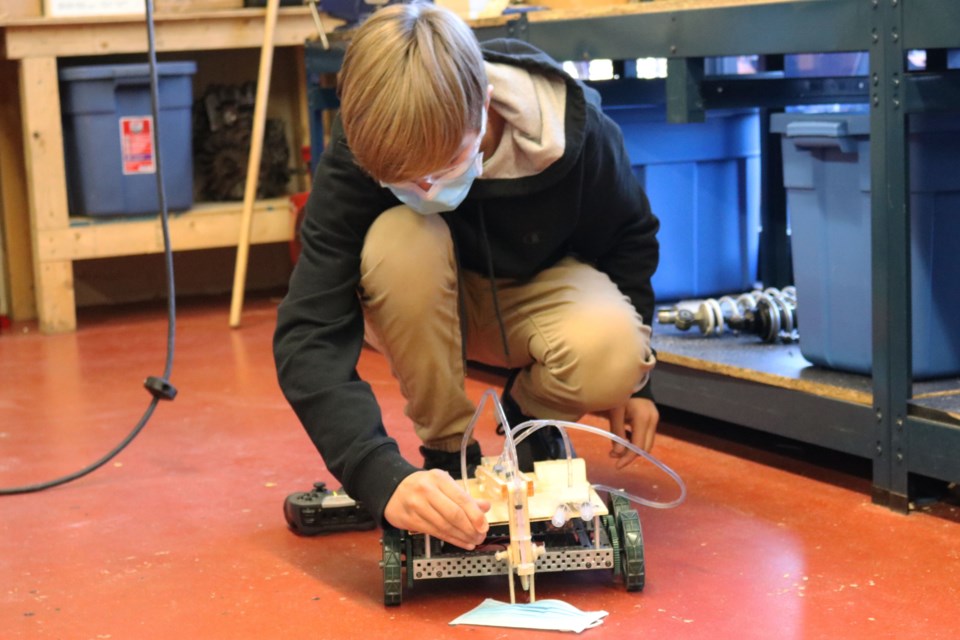A broader range of future career options are being revealed through curriculum evolution at Northern Secondary School.
Technology teacher Kevin Baker and Carmen O’Brien, media studies, have worked together to blend robotics into courses for “experiential learning” opportunities.
It’s a by-product of the “Octomester format” needed this year due to the enhanced protocols for COVID-19.
In Baker’s class, students are introduced to electrical, woodworking and hydraulics while they construct a fully operational robot to perform a practical function.
“We are learning the basics of hydraulics with wooden arms,” says Alex, as quoted in a Near North Board of Education media release. “The task is to pick up masks from the ground, and, of course, no one wants to pick them up with their hands, so we are building a robot.”
They learned a lot by trial and error, Alex explained, noting there was a lot of planning, designing, and building.
“I’m very satisfied with the completed project,” Alex said, adding that “woodworking is an amazing skill to have. I’ll definitely be using it further down the road.”
Students designed their robot to be a combination of a VEX Robotics, electrically-driven chassis with a wooden hydraulic arm mounted on top. The assignment culminates with a demonstration exercise picking up masks.
Down the hall, O’Brien’s media studies students learn how to program robots from scratch using programming blocks I the EV3 LEGO programming software.
“Students have learned how to program robots, how to use three different sensors; touch, ultrasonic, and colour sensors,” explains O’Brien. “They’ve used those sensors to detect objects that are in front of the robot and programmed the robot accordingly so that it can move autonomously through either a maze or through the First Lego League mission board, and accomplish different missions at the same time.”
O’Brien said programming can be challenging, so students develop problem-solving skills to identify which parts of the program work, which ones don’t, and why, to get their robots to successfully complete the mission or maze.
“Robotics is becoming more and more prominent in the job market,” stated O’Brien. “If we look at this pandemic, more companies are switching to automation because robots won’t get sick, won’t need time off and can work 24 hours a day.”
Incorporating robotics introduces students to a possible career avenue while also helping them develop problem-solving skills that they can use in their everyday lives, she said.
Dave Dale is a Local Journalism Reporter with BayToday.ca. LJI is funded by the Government of Canada.
